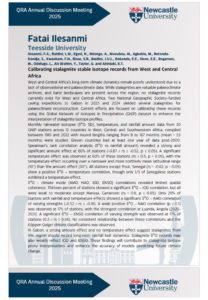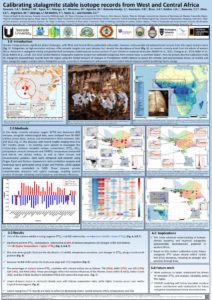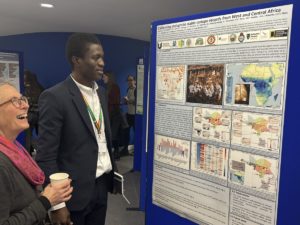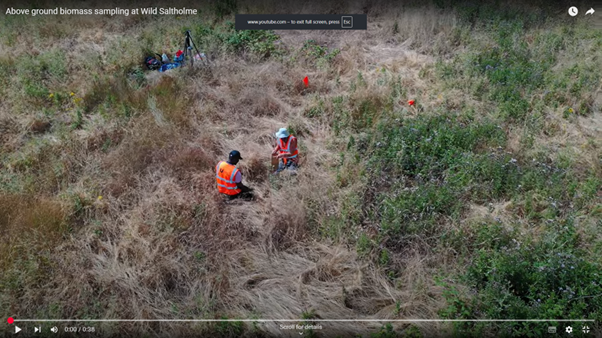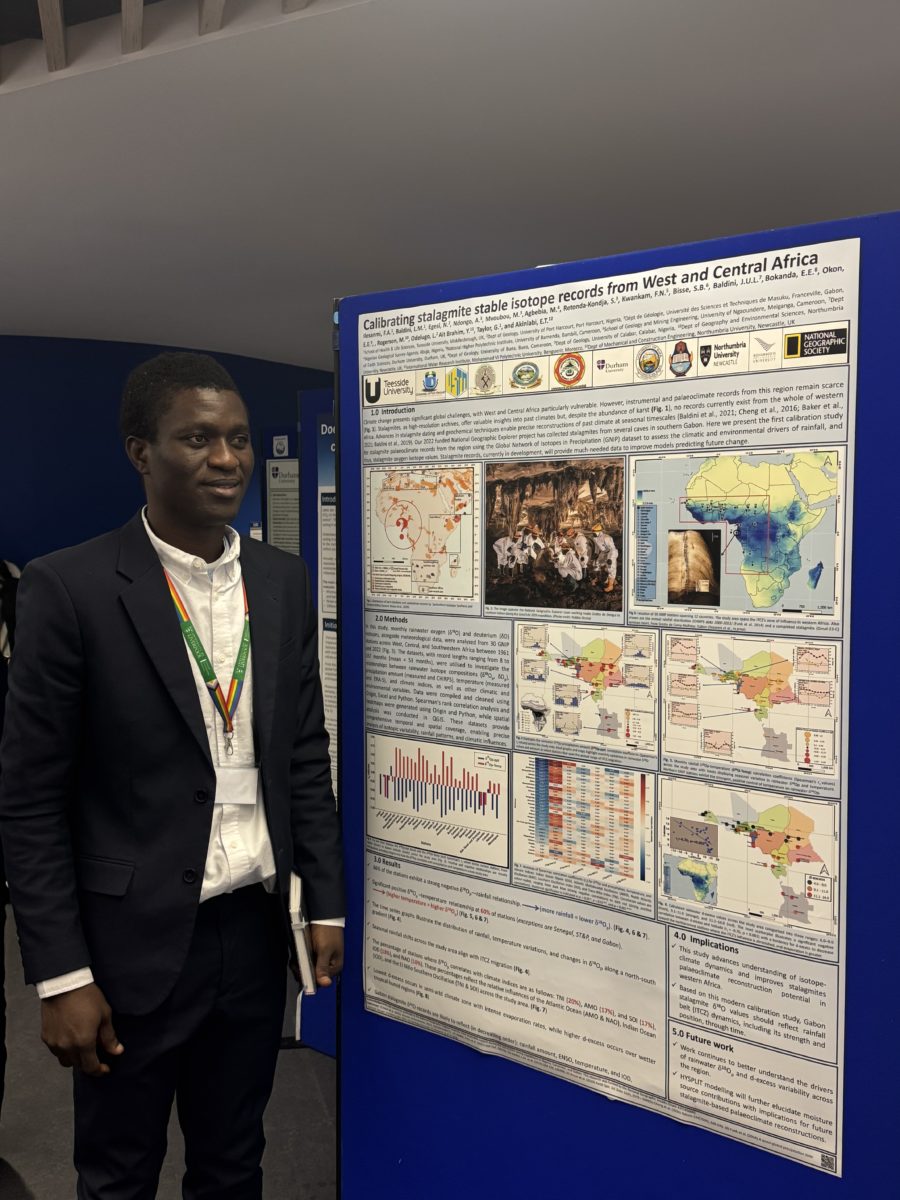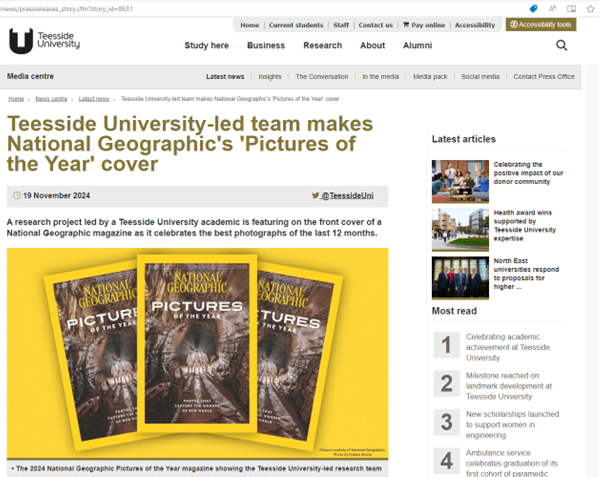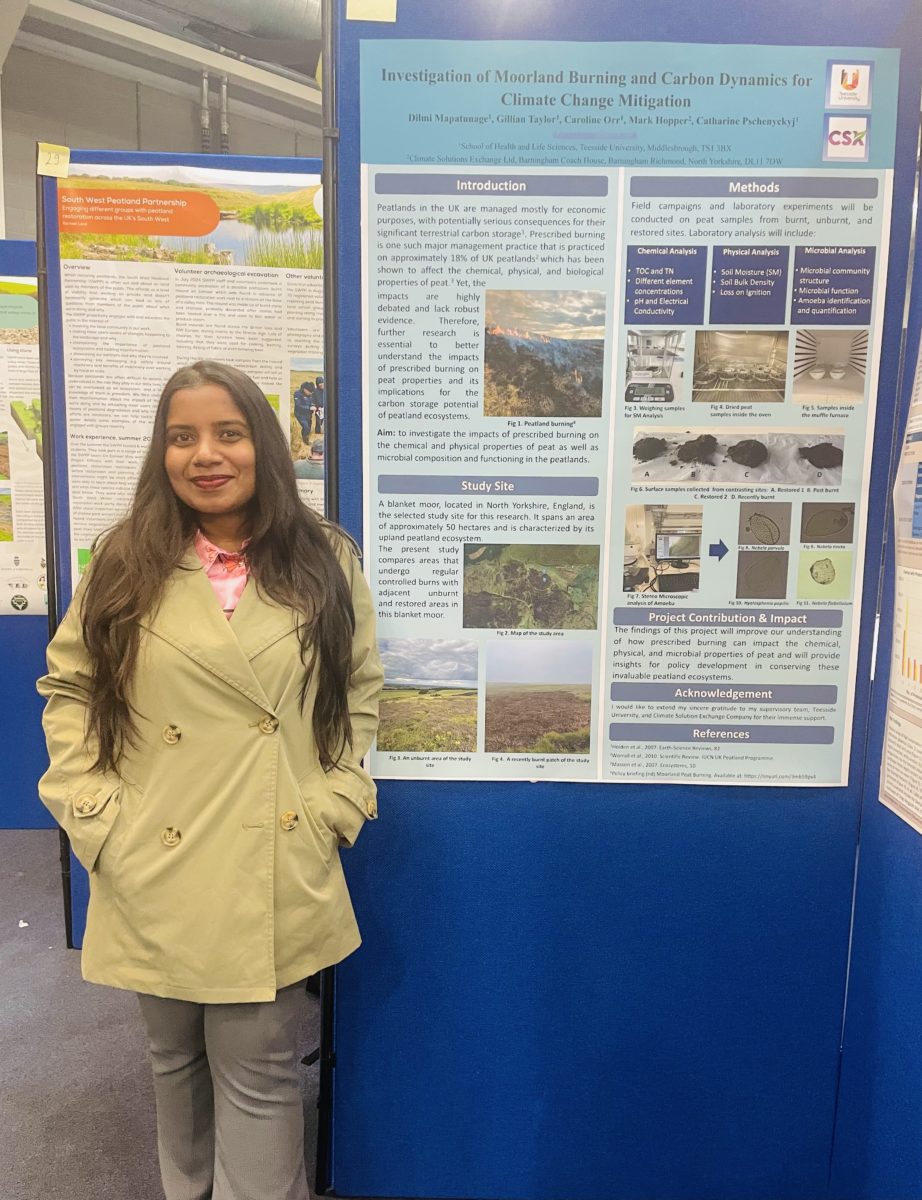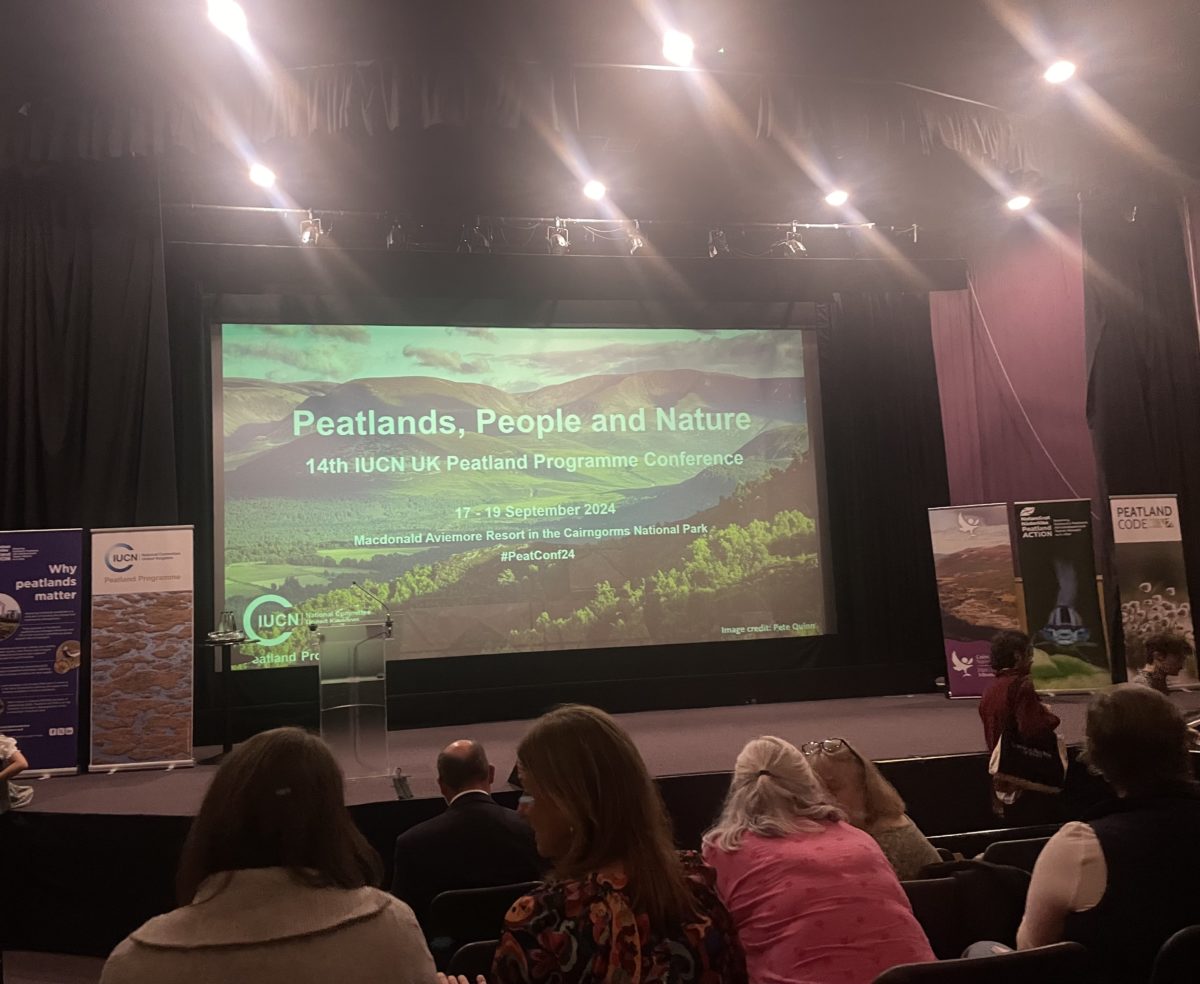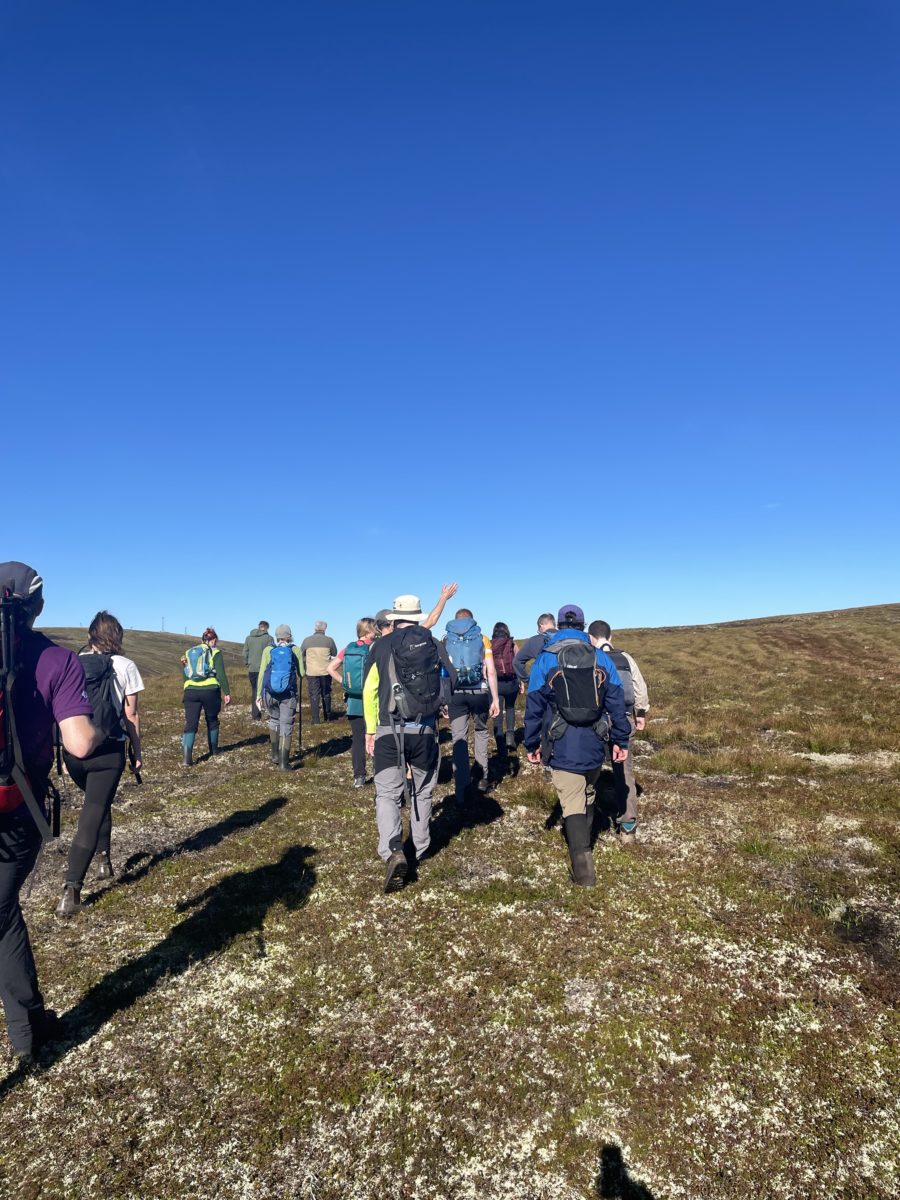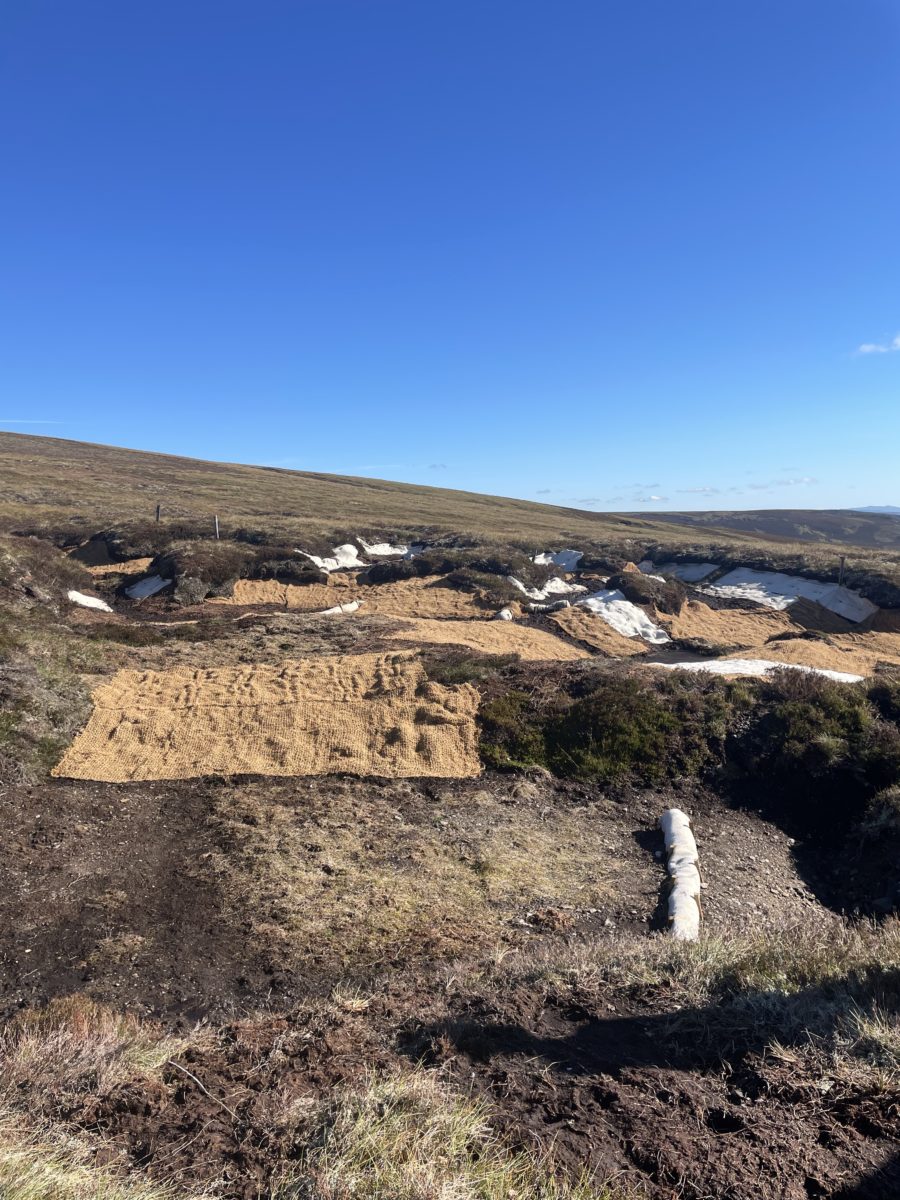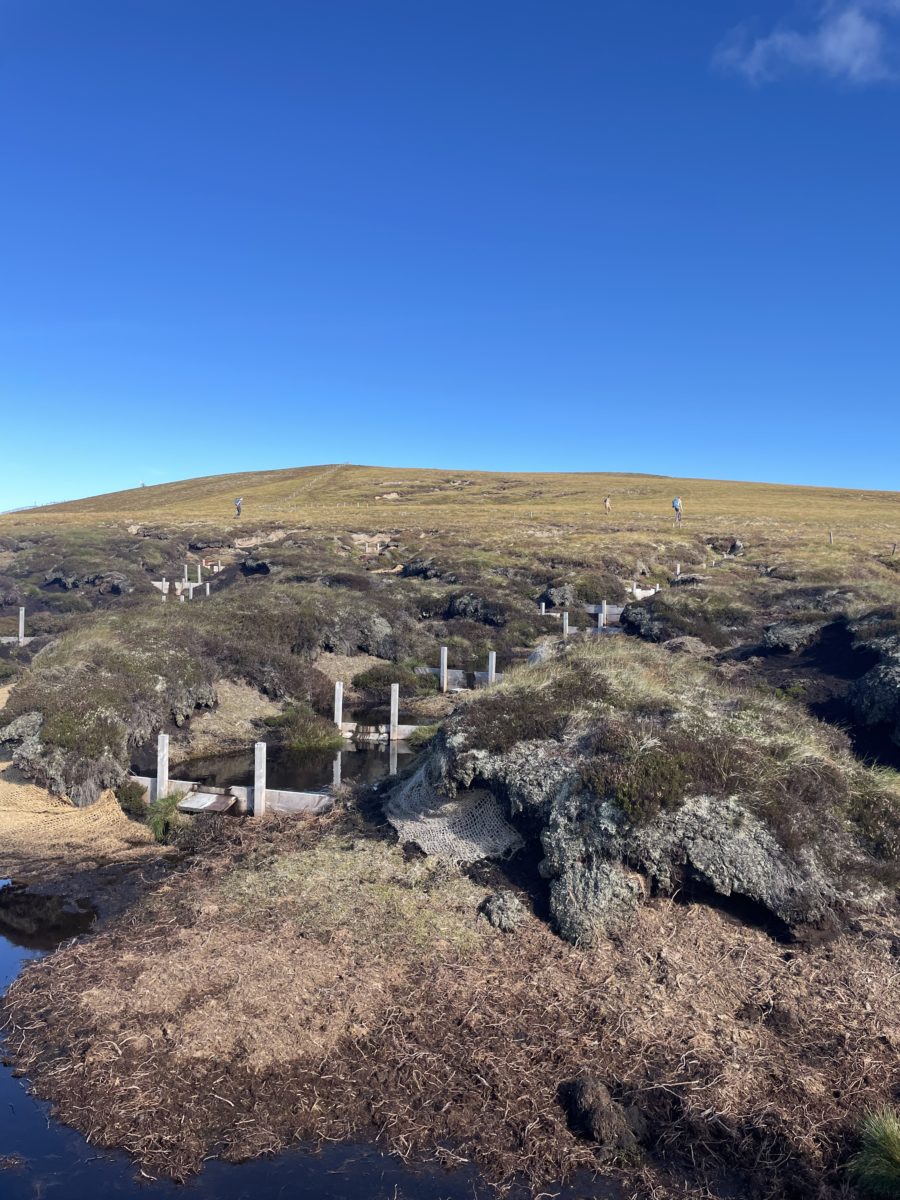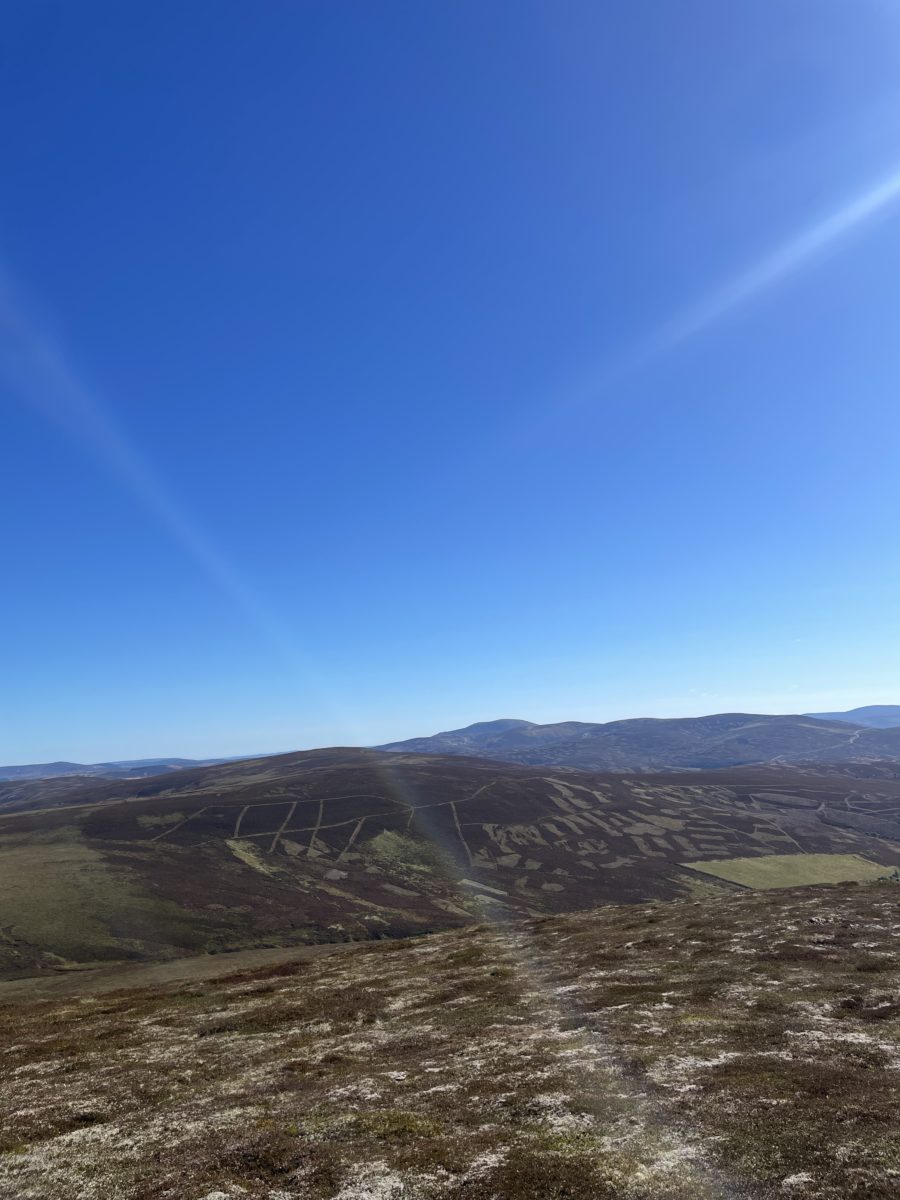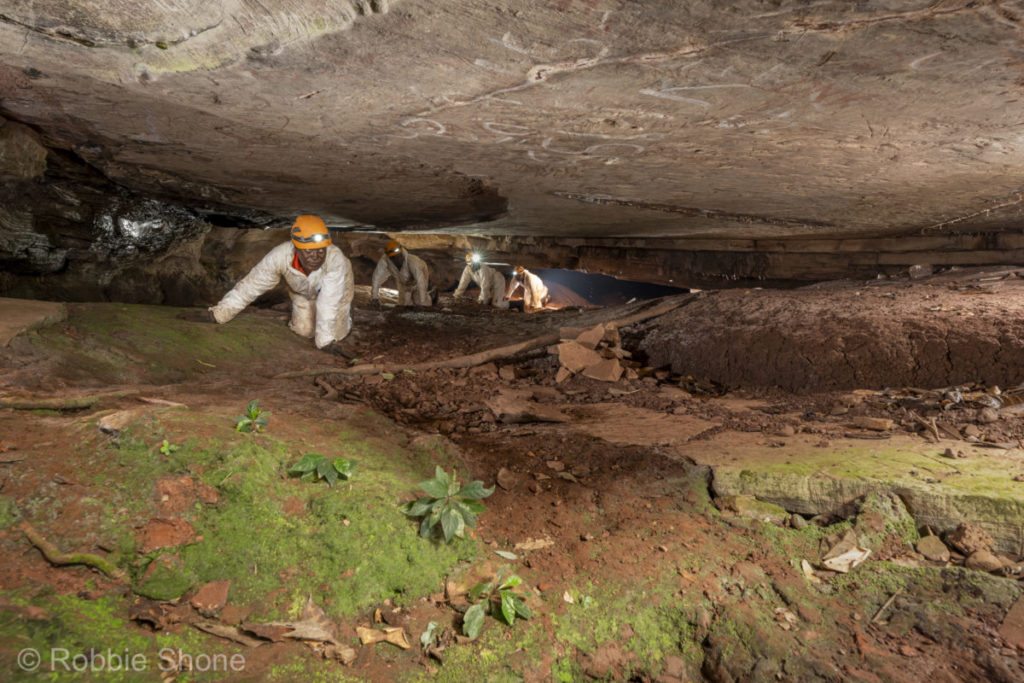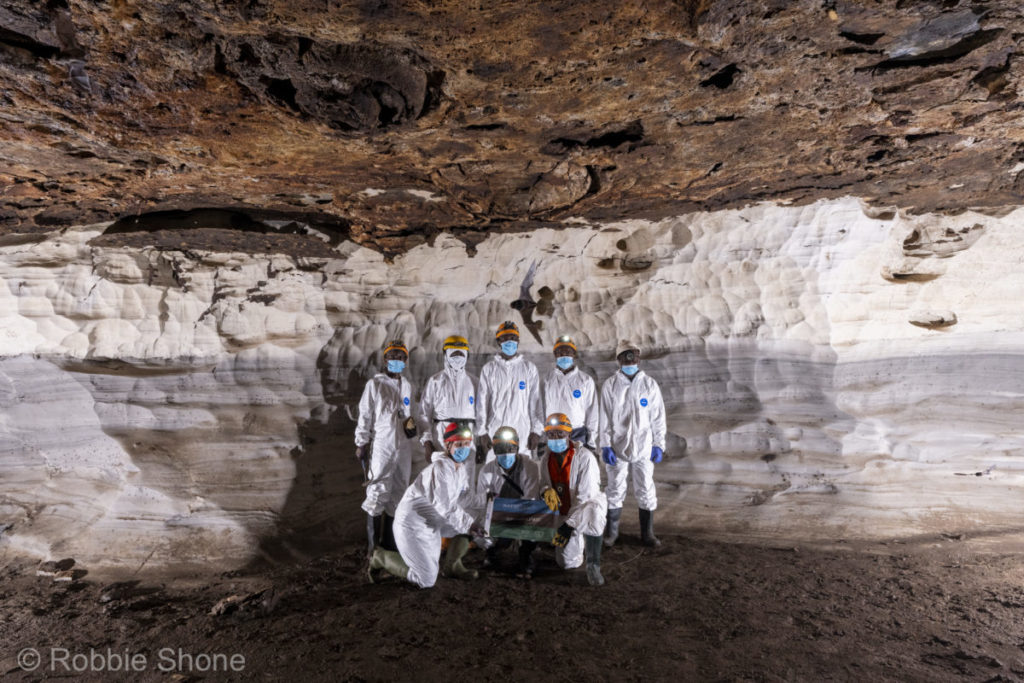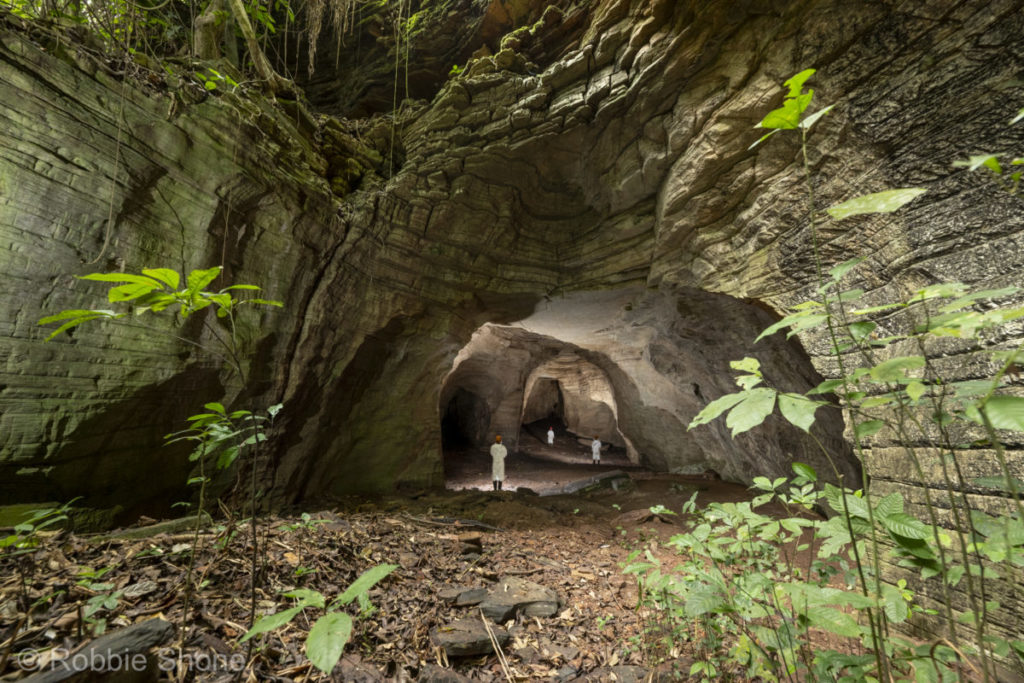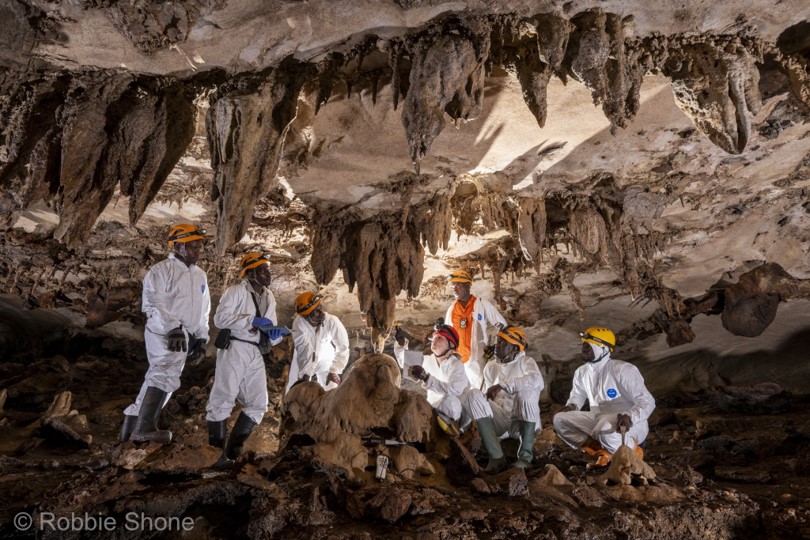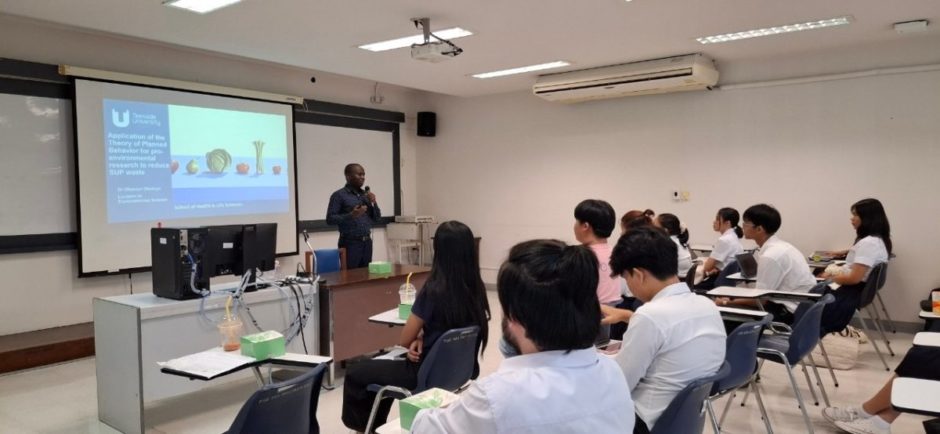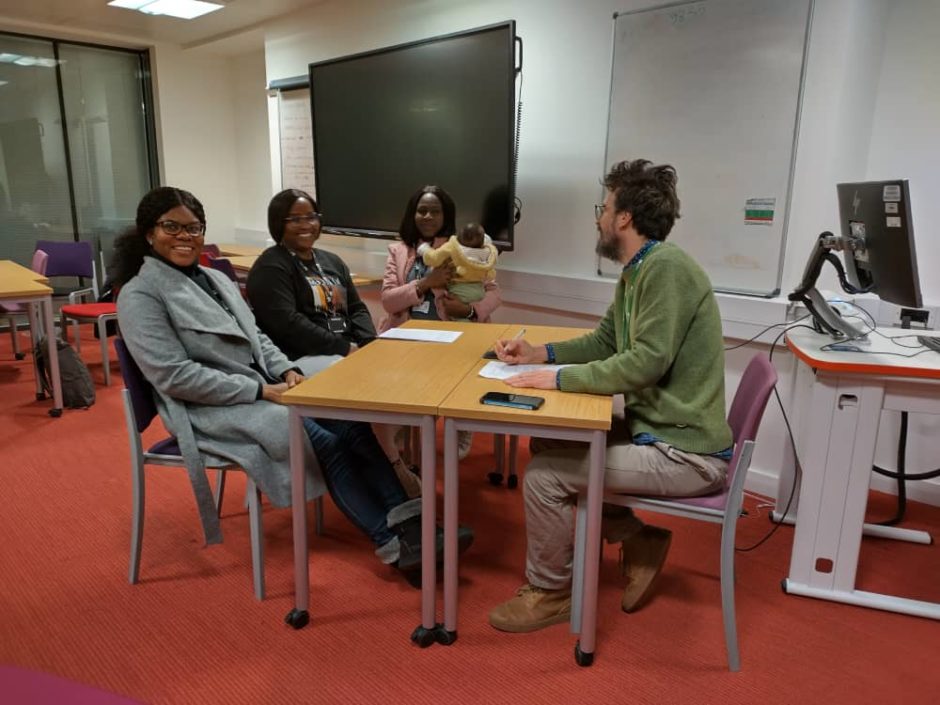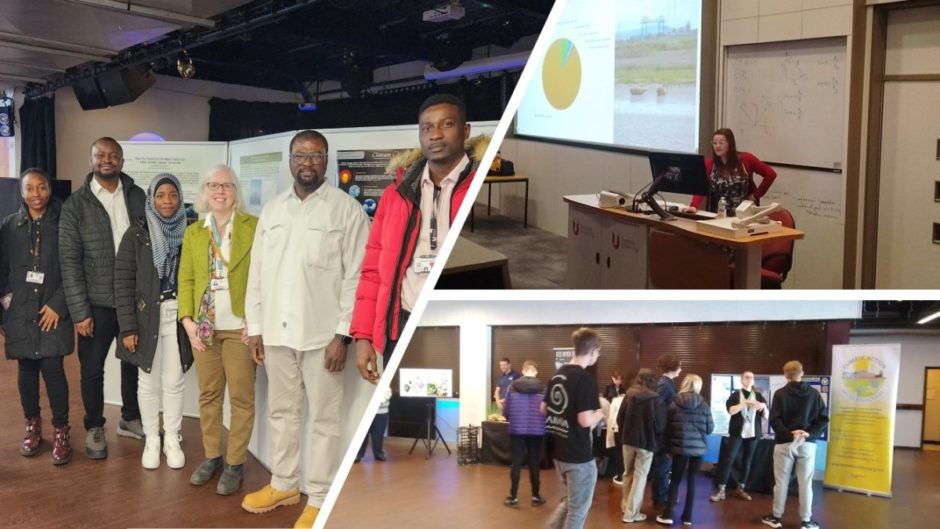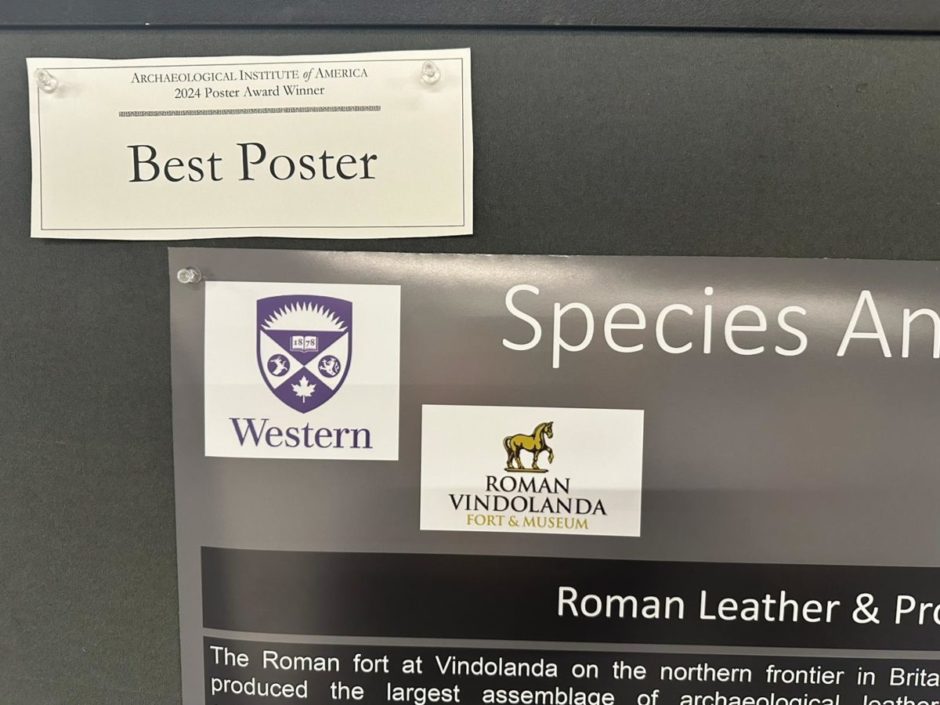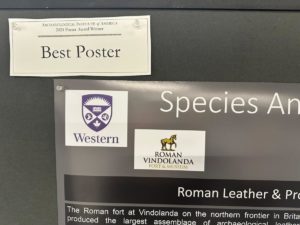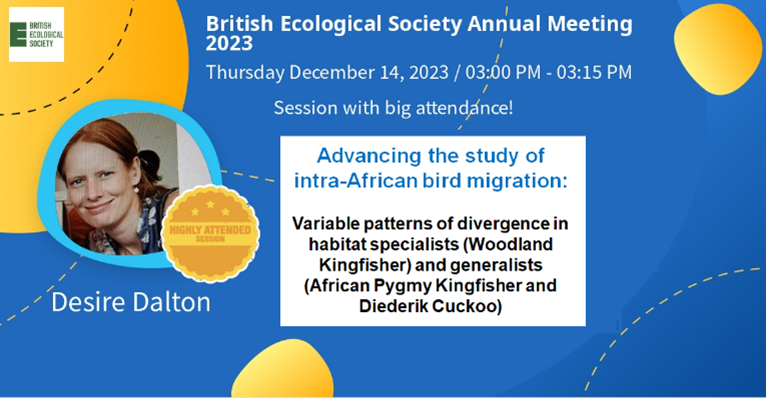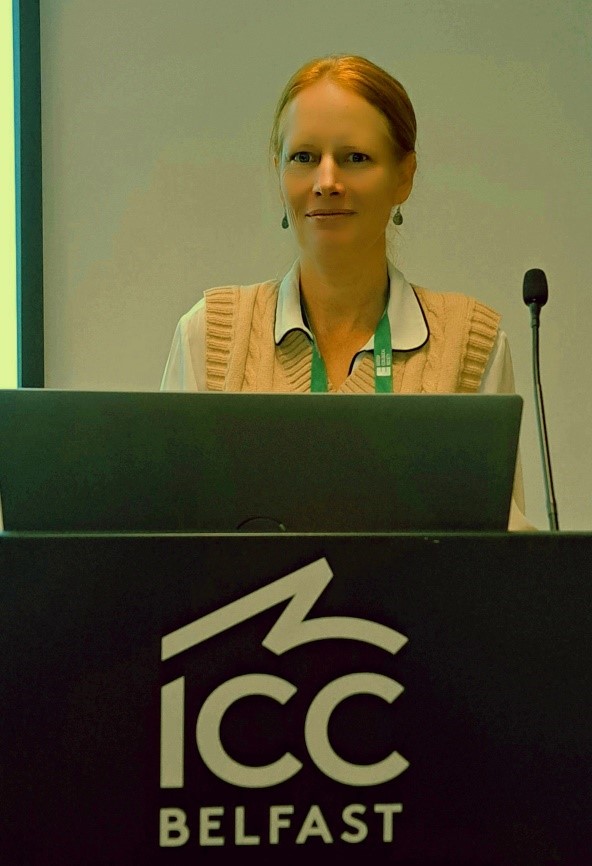Our PhD student, Fatai Ilesanmi, recently showcased his paleoclimate research at the QRA Annual Conference 2025 (6–9 January 2025) at Northumbria University, Newcastle. The conference aimed to bring together experts in quaternary science to discuss advancements in analytical methods, proxy reconstruction, geomorphology, numerical modelling, and geochronology. The conference’s primary objective was to foster collaboration, identify knowledge gaps, and outline future research directions in the field.
During the conference, he had the opportunity to present my collaborative research on calibrating stalagmite stable isotope records in West and Central Africa. This research, supported by National Geographic Society-funded expeditions to Gabon (2023–2024), addresses the critical lack of paleoclimate data in the region.
The study utilises monthly rainwater isotope data (δ¹⁸O, δD), temperature, and rainfall amounts from 30 GNIP stations across 12 countries in West, Central, and Southwestern Africa, compiled between 1961 and 2022. Spearman’s rank correlation analysis (δ¹⁸O vs rainfall amount) revealed a strong and significant amount effect at 66% of the stations.
In Gabon, a strong amount effect suggests that stalagmites from this region should record long-term rainfall belt dynamics. Additionally, stalagmite δ¹⁸O records may also weakly reflect the Indian Ocean Dipole (IOD) and El Niño-Southern Oscillation (ENSO). These findings will contribute to stalagmite isotope proxy interpretations and enhance the accuracy of models predicting future climate change.
The conference was productive, and I received valuable feedback, interacted with other attendees, and was invited by Prof. Mark Bateman from Sheffield University to their department meeting in May 2025 to present my research. Attendees were pleased that our research has produced the first stalagmites from our study regions (Central Africa) and expressed interest in the outcomes of further dating and analysis.
